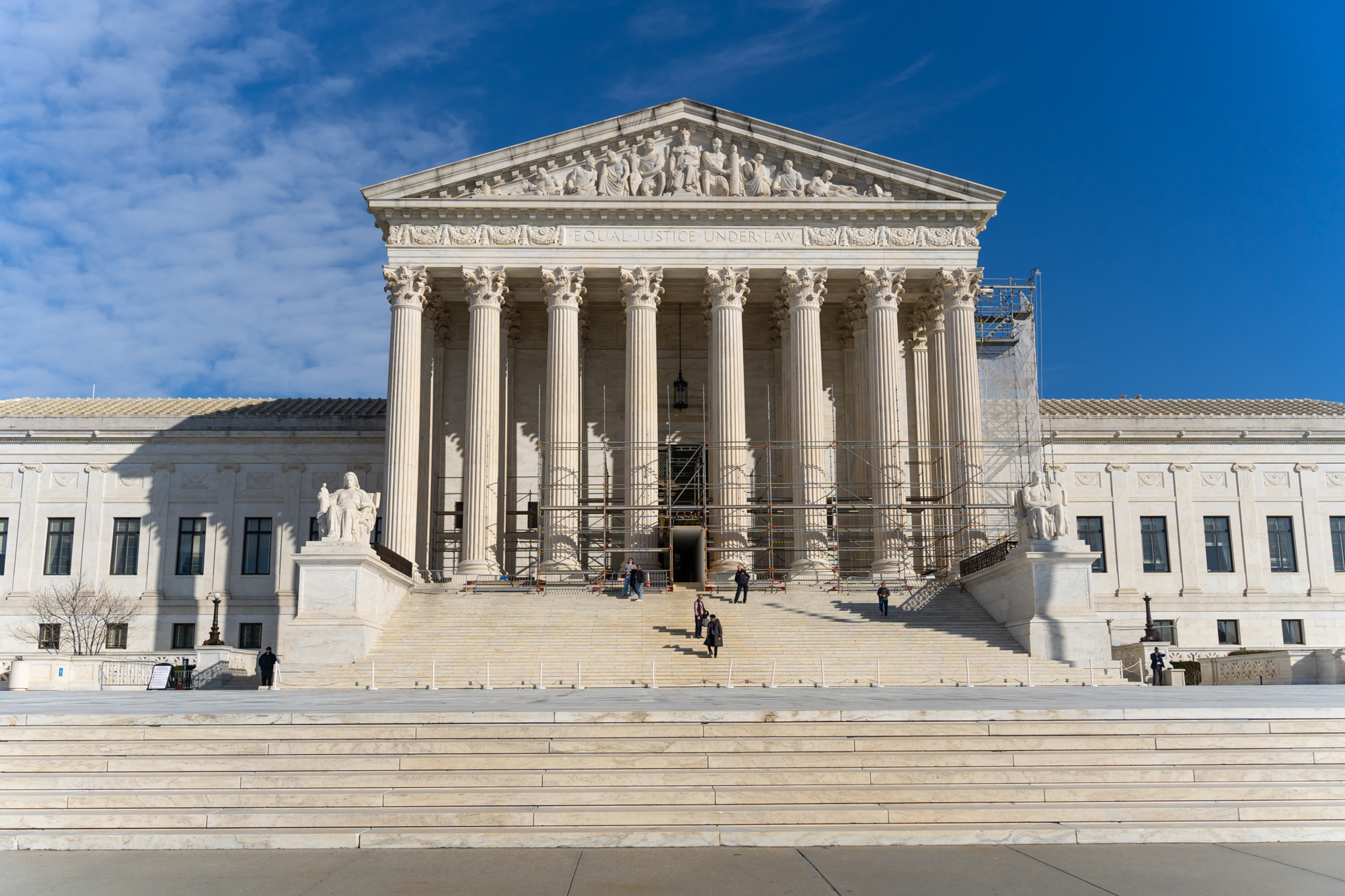The Supreme Court heard arguments on April 22 about whether families have the right to excuse their children from public school lessons featuring books with LGBTQ+ themes.
The case, which originated in Maryland’s largest school system, raised a national debate of how schools will address religious and family rights in public education.
Montgomery County Public Schools, a religiously diverse school system serving about 160,000 students, expanded its school curriculum in 2022 to include books featuring LGBTQ+ characters.
Some Montgomery County schools allowed families to excuse their children from lessons where the books were read aloud. But in March 2023, the school system banned the opt-out policy and said parents would no longer be notified when the books were read.
A group of Muslim, Catholic and Ukrainian Orthodox parents then sued the system, arguing that their constitutional right to religion lets them pull children from lessons regarding gender and sexuality. After lower courts disagreed with the parents, they took their case to the higher court.
The targeted books in this case include titles such as “Uncle Bobby’s Wedding,” which features two men getting married and “Love, Violet,” which tells the story of a girl who develops a crush on a female classmate.

The Supreme Court, which has a 6-3 conservative majority, heard more than two hours of arguments about the case on April 22. Many justices voiced that they had read through the books themselves.
Eric Baxter, the attorney representing the Montgomery County parents, said banning the opt-out policy violates parents’ ability to direct their children’s religious upbringing. In a school system where many students opt out of lessons daily for a variety of reasons, Baxter said, there is no basis for denying opt-outs for religious reasons.
Justice Samuel A. Alito Jr. emphasized that the school board is not required to change its curriculum, but simply provide an opt-out option for parents.
“Why isn’t that feasible?” Alito said. “What is the big deal about allowing them to opt out of this?”
Justice Brett M. Kavanaugh, a lifelong resident of Montgomery County, said he is “mystified” how it came to this. Kavanaugh said he does not understand how an opt-out policy is not possible when every other school board in the county implements opt outs for a variety of reasons.
“I’m just not understanding feasibility,” he said.
Kavanaugh expressed similar sentiments to Alito, stressing that parents are not asking the school board to change classroom instruction, but instead give their children the ability to be excused from certain lessons.
Justice Elena Kagan said that she suspects many non-religious parents are not thrilled about the board’s revocation of the opt-out policy.
But Kagan also questioned the limits of implementing an opt-out policy. She asked if religious parents who objected to course material, regardless of their child’s age or the material’s content, would immediately receive an opt out.
“It will be like opt outs for everyone,” Kagan said.
Alan Shoenfeld, the attorney representing the school board, said children encounter ideas in the classroom daily that conflict with their religious beliefs, but learning about them does not burden free exercise of religion
The opt-out policy would require schools to find alternative classrooms, extra supervision and substitute lessons to accommodate students missing class, he added.
Liberal justices Sonia Sotomayor and Ketanji Brown Jackson appeared to support the school board’s decision to eliminate the opt-out policy.
Sotomayor questioned if simply exposing children to books, such as by displaying them on library shelves or reading them to children, meant coercion.
She questioned how the court a should draw a line in terms of using religious grounds to opt children out of other lessons — including on topics such as evolution, interracial marriage and women’s rights. Sotomayor asked if schools must guess at what parents deem a violation of their religious beliefs.
In a White House briefing, press secretary Karoline Leavitt said U.S. President Donald Trump “believes strongly that parents should have a greater say in their children’s education.”
About 66% of Maryland voters said it is inappropriate for public school teachers to discuss acceptance of LGBTQ+ people with students in kindergarten to third grade, according to a 2022 survey of 810 voters conducted by The Washington Post and the University of Maryland.
The Supreme Court will release its final ruling on the case in June.


You must be logged in to post a comment.